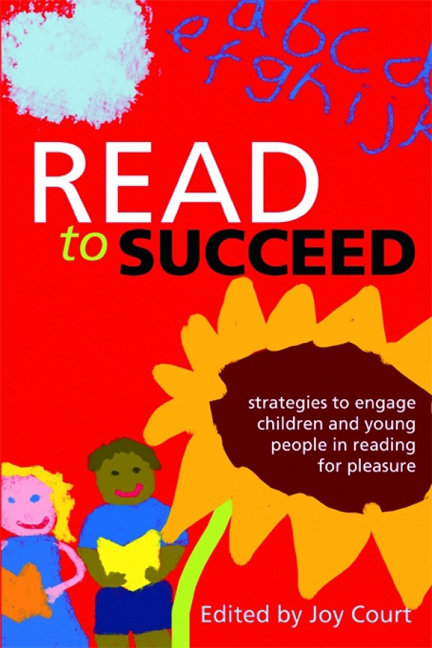Book contents
- Frontmatter
- Dedication
- Contents
- Foreword
- Contributors
- Introduction
- 1 It's never too soon to start
- 2 How children begin to read
- 3 Creating young readers: teachers and librarians at work
- 4 The six dimensions of the ‘honeycomb’ model, and its implications for literacy, libraries and literature in New Zealand
- 5 The Summer Reading Challenge in libraries: a continuing success
- 6 Stockport does Book Idol! A case study linking libraries and schools to inspire reading for pleasure
- 7 There and back again: restoring reading to the classroom
- 8 Promoting excellence: shadowing the CILIP Carnegie and Kate Greenaway Medals
- 9 Choice and motivation: local book awards
- 10 The sport of reading
- 11 Adventures in the book trade: libraries and partnerships
- 12 The hard-to-reach reader in the 21st century
- 13 Creative reading and insideadog.com.au
- Index
- Miscellaneous Endmatter
- Miscellaneous Endmatter
- misc-endmatter
8 - Promoting excellence: shadowing the CILIP Carnegie and Kate Greenaway Medals
Published online by Cambridge University Press: 08 June 2018
- Frontmatter
- Dedication
- Contents
- Foreword
- Contributors
- Introduction
- 1 It's never too soon to start
- 2 How children begin to read
- 3 Creating young readers: teachers and librarians at work
- 4 The six dimensions of the ‘honeycomb’ model, and its implications for literacy, libraries and literature in New Zealand
- 5 The Summer Reading Challenge in libraries: a continuing success
- 6 Stockport does Book Idol! A case study linking libraries and schools to inspire reading for pleasure
- 7 There and back again: restoring reading to the classroom
- 8 Promoting excellence: shadowing the CILIP Carnegie and Kate Greenaway Medals
- 9 Choice and motivation: local book awards
- 10 The sport of reading
- 11 Adventures in the book trade: libraries and partnerships
- 12 The hard-to-reach reader in the 21st century
- 13 Creative reading and insideadog.com.au
- Index
- Miscellaneous Endmatter
- Miscellaneous Endmatter
- misc-endmatter
Summary
Introduction
CILIP, and formerly The Library Association, have been recognizing and rewarding outstanding literature for children and young people since the Carnegie Medal was established and first awarded to Arthur Ransome for Pigeon Post in 1937. A complementary award, the Kate Greenaway Medal for outstanding illustration, followed 20 years later and was first awarded in 1956 to Edward Ardizzone for Tim All Alone.
The Carnegie Medal, the UK's first and, arguably, still the most prestigious award for children's literature in Britain, was established with the intention to:
pinpoint books of excellence in order to provide a basis for selection for anyone attempting to produce a collection of worth to young people … [as well as to] raise standards in a field where the quality of the books in the Victorian and Edwardian periods had declined considerably.
(Barker, 1998, xi)While recognizing quality children's literature was an aim from the outset, promoting high-quality children's books to both the wider library community and the public was not originally a primary goal. However, the introduction of shortlisting within the judging process enabled a clear direction for promoting and celebrating the best children's fiction published in the UK the previous year and a wider platform to promote the eventual winning titles as well.
In addition the published short list has become a successful platform from which to promote reading. The shadowing scheme born in the early 1990s has developed an infrastructure that schools can use to stimulate reading. Each year CILIP invites reading groups in libraries, schools and other reading environments to sign up for the shadowing scheme. Reading activity takes place from April to June each year, from the moment that the short lists are revealed, to the final winners’ announcement. The shadowing process is supported by a dedicated website – www.ckg.org.uk – through which CILIP offers an exciting range of online resources. Once the short list is announced, young readers begin the process of reading books, engaging in discussion in their shadowing groups and tracking their own and other groups’ reading-related activity online.
- Type
- Chapter
- Information
- Read to SucceedStrategies to Engage Children and Young People in Reading for Pleasure, pp. 131 - 152Publisher: FacetPrint publication year: 2011
- 1
- Cited by



